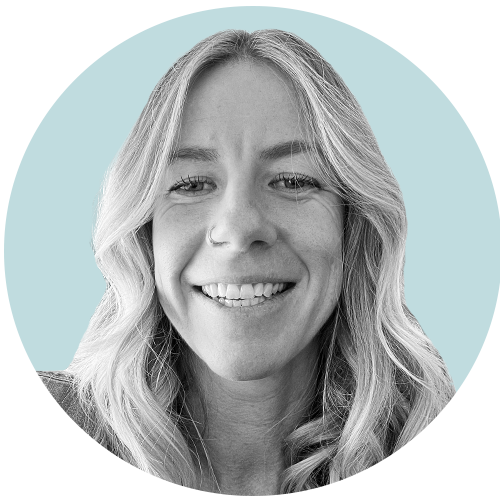🌱


͏ ͏ ͏ ͏ ͏ ͏ ͏ ͏ ͏ ͏ ͏ ͏ ͏ ͏ ͏ ͏ ͏ ͏ ͏ ͏ ͏ ͏ ͏ ͏ ͏ ͏ ͏ ͏ ͏ ͏ ͏ ͏ ͏ ͏ ͏ ͏ ͏ ͏
| | | When it comes to eating animals, I'm conflicted. On one hand, it's so much easier to hit my protein goals by including chicken in my diet. I'm also motivated by the health benefits associated with eating fatty fish. On the other hand, I'm disturbed by the ethical and environmental costs of consuming animals. I'm nowhere near a resolution on this subject. | | Lisa Valente is a registered dietitian and a senior editor here at Healthline. You may recognize her as one of our longest-running contributors. Today, she's back to give us her opinion on one of nutrition's never-die subjects: veganism and plant-based eating. | | | | | | | | Psst: This question originally came to us through a Reddit AMA that Lisa hosted late last year. Yes, the Healthline crew is on Reddit! Keep an eye out for news of future AMAs with our medical experts. | | Eat up,
Ginger Wojcik
Newsletter Editor, Healthline |  | | Written by Ginger Wojcik
February 13, 2025 • 3.5 min read | | | |  | | | | Q: | What do you think about a vegan diet? | | | A: | A vegan diet is plant-based and forgoes all animal products. Many people choose to eat this way out of concern for animals, the environment, or their health or for religious reasons. If you feel compelled to eat vegan, you can definitely do so in a balanced way. In fact, there are many health benefits linked to veganism, including improved weight management, lower blood glucose levels, and decreased risk of certain cancers.
But you also don't have to be a vegan to eat well. A plant-based or flexitarian diet is a less rigid eating pattern that, although heavily focused on plant-based foods, can still include some animal products. There are also many benefits to plant-based eating that you can get without being fully vegan, which may be a more difficult diet to adhere to on a long-term basis.
In recent years, whole-foods, plant-based diets have become popular. The basic principles of this style of eating are: - emphasizing whole, minimally processed foods
- limiting or avoiding animal products
- focusing on plants, including vegetables, fruits, whole grains, legumes, seeds, and nuts
- excluding or seriously limiting refined foods like added sugars, white flour, and ultra-processed foods
- paying special attention to food quality, with many proponents promoting locally sourced, organic food whenever possible
Keep in mind: Meat and dairy contain lots of key nutrients that can be hard to get (though not impossible) on a vegan diet, such as vitamin B12, iron, calcium, vitamin D, and omega-3s. So if you're avoiding most or all animal products, it's important to do your research and pack your diet full of the nutrients you need. Supplementation is something to consider if you can't get enough through diet alone.
Overall, it's possible to eat a balanced vegan diet. But vegans probably need to be more mindful of their intake of protein and key nutrients.
Looking for tasty recipes tailored to your health goals and interests? Consider joining our Eat Well newsletter! | | | | | | | Want to learn more about food, diets, cooking, or some other nutrition subject? Let us know at nutritionedition@healthline.com and we'll look into it for you! (Heads up, we may use your response in an upcoming newsletter.) | | |  | | | | 10 Heart-Healthy Foods to Add to Your Diet | | Looking for ways to support your heart health while enjoying delicious food? This video highlights 10 heart-healthy foods that can help reduce cholesterol, lower inflammation, and keep your heart strong for years to come. | | | | | | | | | | | What we're digesting | | 🫂 What to do if a person with dementia is not eating. Focusing on comfort, accessibility, and quality foods can be a big help. | | 🫛 16 best foods for people with diabetes. Diet can have a major role in preventing and managing this condition. | | 🥗 How to follow a low potassium diet. Your doctor may recommend this if you have advanced kidney disease. | | 📲 7 places to find support on your weight loss journey. Support groups can help improve your mental health as you face the challenges of your new lifestyle. | | | | | How did you feel about this newsletter? | | | | | Email nutritionedition@healthline.com with comments related to this newsletter or topics you'd like to see in future editions. The newsletter editors read every message that lands in our inbox — yes, really! We look forward to hearing from you. | | | | Until next time, |  | Take care of yourself, and we'll see
you again soon! | | | | |  | | This edition was powered by | | nut milk.️ | | | | |
| View in browser
Did a friend send you this email? Subscribe here.
To see all newsletters, click here.
Privacy | Unsubscribe
Our website services, content, and products are for informational purposes only. Healthline does not provide medical advice, diagnosis, or treatment and should not be used as a substitute for medical advice from a healthcare professional. Healthline encourages you to make any treatment decisions with your healthcare professional. Healthline is owned by RVO Health.
© 2025 RVO Health
1101 Red Ventures Drive
Fort Mill, SC 29707 | | |  | |


No comments:
Post a Comment